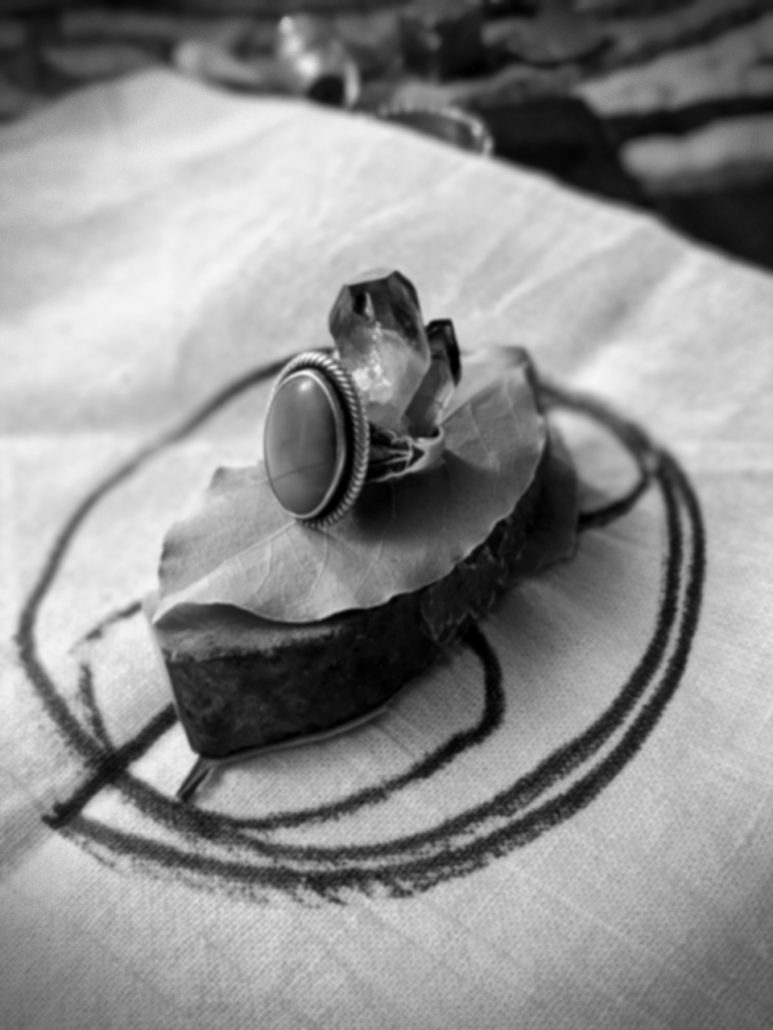A Response to “Law, Religious Racism, and Religions of the African Diaspora” with Danielle N. Boaz
Banning Black Gods is a comprehensive and timely work that adds an unprecedented amount of evidence for the persistence of “religious racism” against African-identified religions today. Boaz’s monograph is incredibly well-researched and should become a cornerstone of syllabi dealing with Africana religions. The scope of the book is also impressive, particularly from the perspective of someone like me, trained as a cultural anthropologist and ethnographer of religious practice. I start small and then try to go big. This book, on the other hand, starts big and ends big, masterfully handling materials from South Africa to Canada. Banning Black Gods is also a much better overview than most of the existing surveys of Afro-Caribbean religion and thus could provide a useful alternative that avoids some of the inadvertent biases of other region-wide surveys.
Since I suppose it is my job to provide some critical response, I will now offer some points in the interview and book where I find room for commentary. I cannot really critique an interview, since we speak in ways that we do not write, but Boaz’s interview is fascinating and important. The only questions I had related to the intersection of “religion” and “race” in the term “religious racism.” As noted in the interview, “religious racism” is a key term in Boaz’s masterful text. Yet, sometimes the terms “race” and “religion” do not converge in conventional understandings (to put it bluntly, sometimes, Black people can be neo-Pentecostals and try to get away from African-identified religions and White people can be initiates in Afro-Brazilian and Afro-Caribbean traditions). This is a rather complicated question, especially starting from the hegemony of US “one drop” racism. Is this internalized racism? Is this White Brazilians and White Cubans enacting a kind of exoticizing desire, implicated in nationalist projects of mixture? The chapter “Continued Proscription: The Rights of Western Versus African ‘Witches’” begins by asserting that “Spiritualists, Wiccans, and other white or European-derived ‘witches’” have received a level of legitimacy that “similar African-based faiths” have been unable to achieve. The “similar” African-based faith the chapter focuses on is obeah, an African-inspired, popular signifier for problem-solving spiritual work in the anglophone Caribbean. In terms of contemporary, differential legitimization, this comparison between obeah and European-identified witchcraft certainly holds water. Religious formations are not equal, depending on their ethno-racial classifications.
However, another interesting issue this chapter raises is the extent to which we should classify “obeah” as akin to European-derived witchcraft, a comparison the chapter returns to in its conclusion. Certainly the history and present of discrimination against obeah provides ample evidence for this equation. Obeah is indiscriminately described as “witchcraft” in colonial and postcolonial discourses that condemn the term in the Caribbean. While in the hispanophone Caribbean and Latin America there has, in places, been a popular vindication of brujo/a (witch) as a term of self-identification (e.g., Romberg 2003), there is no widespread self-identification or program of vindication that uses the term “witch” or “witchcraft” in the anglophone Caribbean proper. There are programs of vindication that do take up the word obeah, but they are quite explicit about not equating that word with “witchcraft” (or “sorcery”). I learned this when, early in my fieldwork, I used the terms “witchcraft” and “sorcery” to help describe obeah in a presentation at a cultural center in Trinidad. An audience member, who was also a friend and practitioner of African religions, strongly objected to my use of those words.
It is thus unclear to me as to whether scholars should be equating practices of “obeah” and “witchcraft” (except to describe colonial and postcolonial invectives against obeah). This also reveals that the ground on which advocates use obeah is different from the ground on which some neo-pagans, wiccans, or espiritistas might use this term. Just as I argue that obeah should not have to be made into a European image of religion to gain recognition, it should also not have to be made into a Eurocentric idea of “witchcraft.” While there are interesting connections between the texts and practices of many anglophone Caribbean spiritual workers and some Wiccans or ceremonial magicians in Western Europe, I have argued elsewhere that they do not necessarily share the same views on “power” or “science” (key concepts/practices within both Western and Afro-Caribbean esotericism). This raises another interesting question regarding the extent to which legal defintions of “religion” (or popular ideas of “witchcraft”) can protect obeah and other stigmatized African-inspired religions.
In the case of legal definitions of religion, the Canadian Supreme Court case involving obeah that Boaz (and others) have written about shows how ostensible recognition as “religion” cannot save obeah from a lack of legal protection. In this case the court sided with expert witnesses in concurring that obeah qualified as a religion (as Boaz notes in this interview), but that the particular practices involved in the case (obeah to protect clients from the criminal justice system) was not “moral.” While it would be shocking to the “moral community” of Canada for a police officer to impersonate a Catholic priest to obtain incriminating confessions, it was not morally shocking for the police to use obeah to do so. The police, therefore, left dead crows on a suspect’s doorstep, dressed a Caribbean-Canadian officer up in a Dracula costume, and detained a suspect’s mother to cement their impersonation of obeah to obtain confessions. The court somehow deemed obeah as “religion” (perhaps grudgingly) but refused to grant it any substantive protections.
In the US, there is a similar way in which legal recognition does not necessarily translate into actual protection. In 1993, the US Supreme Court ruled it unconstitutional to ban the religious animal offerings that are considered obligatory in Yoruba-inspired Afro-Caribbean religions. Yet, I have been called by reporters to deliver comment on the arrest of practitioners of Afro-Caribbean religions for the practice of animal offerings in Texas within the past five years. Religious racism can trump religious freedom, asking to what extent any recognized concept of religion can be disentangled form race in modern nation-states. I thus argue elsewhere that religion is a moral-racial category in modernity, foundationally defined against pejorative European images of sub-Saharan (not)religion. Any battle waged on the basis of “religion” must eventually confront or recruit this germinal exclusion. To my mind, laws on religious freedom are not self-conscious of this exclusion, treating religion as a universal domain rather than a category that (like race, for example) could be used to legally prevent discrimination. In other words I cannot go to court and try to gain legal protections on the specific grounds that I have a race called Whiteness (regardless of the claims of the sob school of alt-right whiteness). Basically, every time I go to court I have extra rights based on Whiteness already, so there is no need to provide me with special legal protections on that basis. But I could reasonably go to court saying I had a recognized form of Christianity and hope to gain something. To my mind this seems wrong-headed, and religion could be treated (at least legally) more like race, a social/historical construct that facilitates both solidarity and discrimination, rather than some universal je ne sais quoi. We could thus begin to contextualize the rights of different religions within their specific histories of discrimination or privilege. This would benefit African religions, in a way that universal ideas of religion in legal codes often do not.
Perhaps another issue on which this book could have delivered more commentary is the way that these exclusions from “religion” complicate notions of racism. One reason why “witchcraft” is not a viable option for legitimization in the anglophone Caribbean is the powerful influence of Third Wave Christian Spiritual Warfare Theology. Generally, such theology states that (certain) Christians have the task of establishing “dominion” over the earth by battling against demon and devil worship. Such worship is not only equated with European pagan emblems, but with Africana and Indigenous religions (again showing how a likening of neo-Paganism and obeah could be less-than-beneficial).
Such modern Christian theology is a powerful source of violence against African-identified religions in the Caribbean and Brazil, and thus deserves further attention. However, such “religious racism” raises complicated questions in which religious invectives of Anti-African racism do not always align with race. In her discussion of debates over the decriminalization of obeah in Trinidad and Tobago in 2000, for example, a Hindu member of the so-called Indian political party defended obeah and other African religions against the charges, delivered by a member of the so-called “African” political party, that those practices represented “devil worship” (Boaz 153). For various reasons (that include political ones [see Castor 2017]), non-Christian, non-African-descended Trinidadian leaders often defended African religions against attacks by Afro-creole Christian leaders. This is not to say that all Afro-Trinidadian Christians (or even all neo-Pentecostals) consider African religions to be “devil worship” or “witchcraft”; that is clearly not the case. Yet, religious racism, in the case of obeah’s decriminalization, often drew lines of racism that might seem incomprehensible within US-centric matrices of race. These forms of religious racism ultimately have to do with the ways that Christianity (and definitions of “religion”) were (and are) used to arbitrate moral citizenship in the Americas.
After detailing one parliamentary exchange in this debate over legalizing obeah in Trinidad, Boaz notes the profound difference between this serious debate over “witchcraft” and the embarrassment that British parliamentarians felt in debating the decriminalization of “witchraft” in the early 1950s (154). While Boaz does not explicitly write this, the profound difference between these debates has to do with the difference between “superstition” and “witchcraft.” Colonial laws against obeah became increasingly ambivalent about their links to anti-witchcraft discourses in the nineteenth century and instead tried to frame such prohibitions in terms of false practice: fraud, superstition, or pretense. These practices, to use a common British colonial qualifier, were “pretended” rather than real. British parliamentarians, in line with a certain elite British fantasy of rationality (defined through colonialism), felt embarrassed that they still had a law about “witchcraft.” Contrastingly, in the contemporary Caribbean, with the increasing influence of Spiritual Warfare Theology, witchcraft is often a real threat rather than a false delusion (or, at least, an aspersion with real consequences). The Trinbagonian parliament thus did not decriminalize obeah because it was wrong to criminalize “witchcraft,” but did so on the grounds that obeah had been wrongly used to define and delegitimize other African religions (namely, the Spiritual Baptist and Orisha faiths).
In her conclusion to this chapter, Boaz likens contemporary discrimination against obeah to the archaic anti-witchcraft attitudes of Europeans in the early modern period (a discrimination that became embarrassing for “rational” moderns) (159). Such an equation, like the equation of obeah and pagan witchcraft, has disturbing implications. Is the Caribbean simply behind Europe in terms of (secular) tolerance? These are questions that must be directly addressed. One problem with this comparison is that Spiritual Warfare theology, as a number of scholars have noted, is self-consciously modernizing, capitalist, and neoliberal. It is thus not simply a remnant of sixteenth century European beliefs but a reflection of contemporary Western capitalism. Another problem is that the rationality of the British (or any Westerner) has been overrated. Even in the Victorian heyday of rational British gentlemen, these same gentlemen were often attending Spiritualist seances to communicate with the dead. It is important to remain clear about the contemporary religious movements that inform anti-African sentiments in the Americas, but this would raise questions that are perhaps unsettling or beyond the scope of this work.
At any rate, I will stop dwelling on the issues with which I am most familiar to reiterate how important and timely this book is. Banning Black Gods should become a standard in the field and represents a vital, interdisciplinary resource for teaching and education that combats “religious racism” today.



